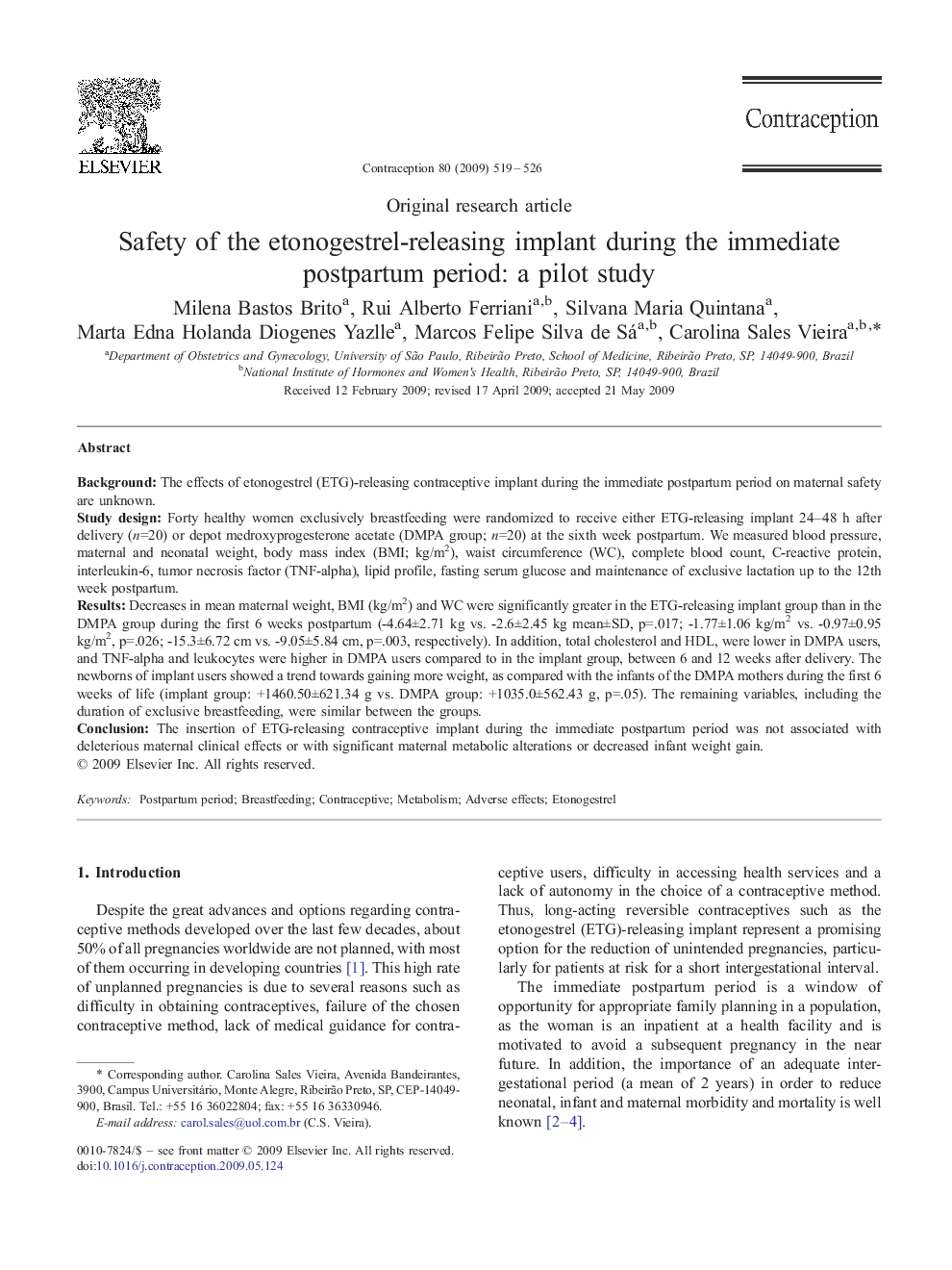| Article ID | Journal | Published Year | Pages | File Type |
|---|---|---|---|---|
| 3915033 | Contraception | 2009 | 8 Pages |
BackgroundThe effects of etonogestrel (ETG)-releasing contraceptive implant during the immediate postpartum period on maternal safety are unknown.Study designForty healthy women exclusively breastfeeding were randomized to receive either ETG-releasing implant 24–48 h after delivery (n=20) or depot medroxyprogesterone acetate (DMPA group; n=20) at the sixth week postpartum. We measured blood pressure, maternal and neonatal weight, body mass index (BMI; kg/m2), waist circumference (WC), complete blood count, C-reactive protein, interleukin-6, tumor necrosis factor (TNF-alpha), lipid profile, fasting serum glucose and maintenance of exclusive lactation up to the 12th week postpartum.ResultsDecreases in mean maternal weight, BMI (kg/m2) and WC were significantly greater in the ETG-releasing implant group than in the DMPA group during the first 6 weeks postpartum (-4.64±2.71 kg vs. -2.6±2.45 kg mean±SD, p=.017; -1.77±1.06 kg/m2 vs. -0.97±0.95 kg/m2, p=.026; -15.3±6.72 cm vs. -9.05±5.84 cm, p=.003, respectively). In addition, total cholesterol and HDL, were lower in DMPA users, and TNF-alpha and leukocytes were higher in DMPA users compared to in the implant group, between 6 and 12 weeks after delivery. The newborns of implant users showed a trend towards gaining more weight, as compared with the infants of the DMPA mothers during the first 6 weeks of life (implant group: +1460.50±621.34 g vs. DMPA group: +1035.0±562.43 g, p=.05). The remaining variables, including the duration of exclusive breastfeeding, were similar between the groups.ConclusionThe insertion of ETG-releasing contraceptive implant during the immediate postpartum period was not associated with deleterious maternal clinical effects or with significant maternal metabolic alterations or decreased infant weight gain.
